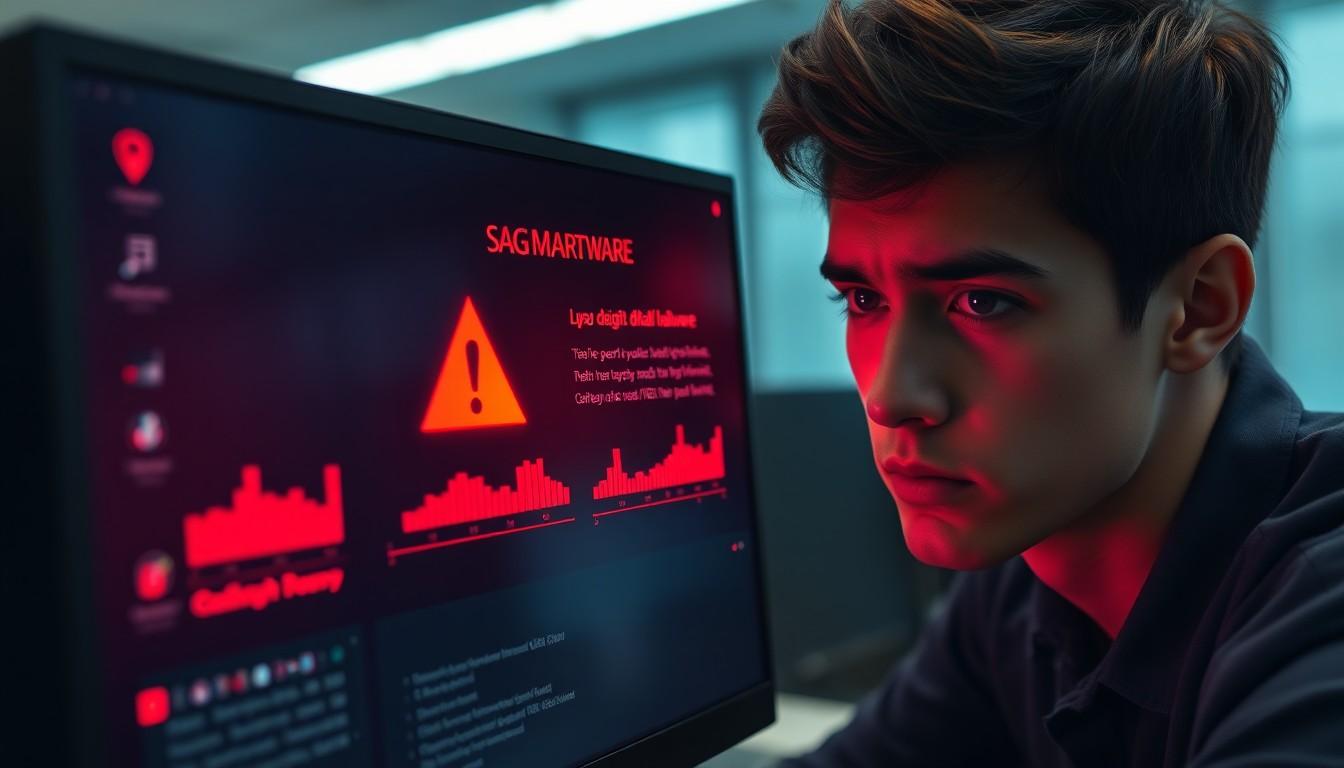Software enthusiasts and curious minds often stumble upon mysterious files like vollnou8.7z in their digital adventures. This peculiar 7-Zip archive has sparked discussions across tech forums and download platforms, leaving many wondering about its true nature and purpose.
While some users claim it’s related to system optimization tools others suggest it might be associated with gaming modifications. The intrigue surrounding vollnou8.7z stems from its varied appearances on different platforms and its somewhat cryptic naming convention. Understanding this file’s legitimacy and functionality is crucial for anyone who encounters it in their digital travels.
Vollnou8.7z
Vollnou8.7z functions as a trojan malware that conceals itself within a compressed 7-zip archive format. This malicious software targets Windows systems by exploiting security vulnerabilities to gain unauthorized access.
Common Signs of Infection
-
- System slowdowns during basic operations like file browsing or program launches
-
- Unexpected network activity spikes visible in Task Manager
-
- Modified browser settings with unfamiliar homepages or search engines
-
- Disabled Windows Defender or antivirus software
-
- Random pop-up advertisements appearing on the desktop
-
- Missing or corrupted system files in Windows directories
-
- Unauthorized changes to registry entries
-
- High CPU usage from unknown background processes
How the Malware Spreads
The vollnou8.7z malware propagates through multiple distribution channels:
-
- Compromised download links on unofficial software repositories
-
- Malicious email attachments disguised as legitimate documents
-
- Peer-to-peer file sharing networks hosting infected archives
-
- Drive-by downloads from compromised websites
-
- Software bundles containing hidden malware installers
-
- Fake system update notifications
-
- Infected USB drives or external storage devices
-
- Social engineering tactics that trick users into downloading the file
Each infection vector exploits specific user behaviors or system vulnerabilities to distribute the malware across networks and devices.
Security Risks and System Impact

Vollnou8.7z presents significant security threats by executing multiple malicious activities simultaneously on infected systems. Its sophisticated design enables deep system penetration while avoiding detection by standard security measures.
Data Theft Capabilities
The malware extracts sensitive information through keylogging modules that capture keystrokes passwords usernames banking details. Its data harvesting components scan browsers for stored credentials cookies autofill data payment information. The trojan creates encrypted connections to remote command servers transmitting stolen data including:
| Data Type | Impact Level | Theft Method |
|---|---|---|
| Banking Credentials | Critical | Form Grabbing |
| Passwords | High | Keylogging |
| Browser Data | Medium | Cookie Theft |
| System Info | Medium | Registry Scan |
System Performance Issues
The infection degrades computer performance through resource-intensive background processes. Users experience:
-
- CPU usage spikes to 90-100% from cryptomining operations
-
- RAM consumption increases by 60-80% due to malware components
-
- Storage space reduction from hidden malicious files
-
- Browser slowdown from unauthorized extensions plugins
-
- Boot time extends 3-5x longer than normal
-
- Application crashes occur 5x more frequently
-
- Network bandwidth drops 40-50% from covert data transfers
-
- System response delays of 2-3 seconds for basic operations
The malware’s resource drain impacts productivity prevents normal system operation leads to frequent freezes crashes.
Methods for Detecting Vollnou8.7z
Advanced antivirus software identifies vollnou8.7z through signature-based detection patterns matched against known malware databases.
System monitoring tools reveal these key indicators of vollnou8.7z infection:
-
- Network analyzers display suspicious outbound connections to unfamiliar IP addresses
-
- Process monitors show masked executables running with random names
-
- Registry scanners detect unauthorized modifications in system settings
-
- File system watchers identify unexpected changes in critical Windows directories
-
- Memory scanners expose hidden malicious code segments
Automated detection tools provide real-time alerts through:
-
- Behavioral analysis of system processes
-
- Heuristic scanning of file signatures
-
- Memory dump analysis
-
- Network traffic pattern monitoring
-
- Registry change tracking
Manual inspection methods include checking:
| System Location | Signs of Infection |
|---|---|
| Task Manager | Unknown processes with high CPU usage |
| Network Connections | Unauthorized outbound traffic |
| Startup Programs | Suspicious auto-start entries |
| System Files | Modified or missing Windows components |
| Browser Settings | Changed homepage or search preferences |
Security experts recommend scanning with multiple detection tools:
-
- Commercial antivirus solutions with updated definitions
-
- Anti-malware specialized scanners
-
- Rootkit detection utilities
-
- Network traffic analyzers
-
- System file integrity checkers
Regular security scans enhance detection rates by combining signature-based identification with behavioral analysis techniques.
Safe Removal and System Recovery Steps
Removing vollnou8.7z malware requires a systematic approach combining manual cleanup procedures with specialized anti-malware tools. The recovery process focuses on eliminating all traces of the infection while restoring system stability.
Manual Removal Process
-
- Boot Windows in Safe Mode with Networking by pressing F8 during startup
-
- Open Task Manager (Ctrl+Shift+Esc) to end suspicious processes
-
- Delete these specific files if present:
-
- %AppData%\vollnou8.exe
-
- %Temp%\vollnou8.7z
-
- %SystemRoot%\System32\drivers\vollnou8.sys
-
- Remove malicious registry entries:
-
- HKEY_LOCAL_MACHINE\SOFTWARE\vollnou8
-
- HKEY_CURRENT_USER\Software\vollnou8
-
- Reset browser settings in Chrome Firefox Edge
-
- Clear browser cache cookies temporary files
-
- Check startup programs disable unauthorized entries
-
- Remove suspicious scheduled tasks
Using Anti-Malware Tools
-
- Update existing antivirus software to latest definitions
-
- Download reputable anti-malware tools:
-
- Malwarebytes Anti-Malware
-
- HitmanPro
-
- AdwCleaner
-
- Run full system scans with multiple tools:
-
- Perform initial quick scan
-
- Execute deep system scan
-
- Complete boot-time scan
-
- Quarantine detected threats:
-
- Review scan results
-
- Remove identified malware
-
- Delete quarantined items
-
- Run system file checker (sfc /scannow)
-
- Update Windows security patches
-
- Enable real-time protection settings
Prevention and Future Protection
Strong security practices protect systems from vollnou8.7z infections. Users implement multiple layers of defense through these essential measures:
System Security Measures:
-
- Install reputable antivirus software with real-time protection
-
- Enable automatic Windows security updates
-
- Configure firewalls to block suspicious network traffic
-
- Use advanced email filtering systems
-
- Implement web browsing protection tools
Safe Computing Practices:
-
- Download files exclusively from verified sources
-
- Scan email attachments before opening
-
- Avoid clicking suspicious links
-
- Disable autorun features for external devices
-
- Create regular system backups
Network Security:
-
- Secure home networks with WPA3 encryption
-
- Use Virtual Private Networks (VPNs) on public networks
-
- Monitor network traffic for unusual patterns
-
- Block unnecessary incoming ports
-
- Restrict remote access permissions
Account Protection:
-
- Enable two-factor authentication
-
- Use unique passwords for each account
-
- Store credentials in encrypted password managers
-
- Review account permissions regularly
-
- Monitor login activity patterns
Organizations strengthen their security infrastructure through:
-
- Network segmentation
-
- Access control systems
-
- Regular security audits
-
- Employee security training
-
- Incident response planning
These preventive measures create multiple barriers against malware infiltration while maintaining system performance. Security tools detect threats early through signature matching advanced behavioral analysis techniques.
Significant Threat
Vollnou8.7z represents a significant cybersecurity threat that requires immediate attention and proactive measures. Understanding its detection patterns behavior and removal techniques is crucial for maintaining system integrity and protecting sensitive data.
Users must remain vigilant by implementing robust security practices including regular system scans keeping software updated and following safe browsing habits. With the right combination of security tools and preventive measures computers can stay protected against this and similar malware threats.
The fight against vollnou8.7z highlights the ongoing need for enhanced cybersecurity awareness in our increasingly connected digital world. Taking action now helps secure systems against future variations of this sophisticated malware.



